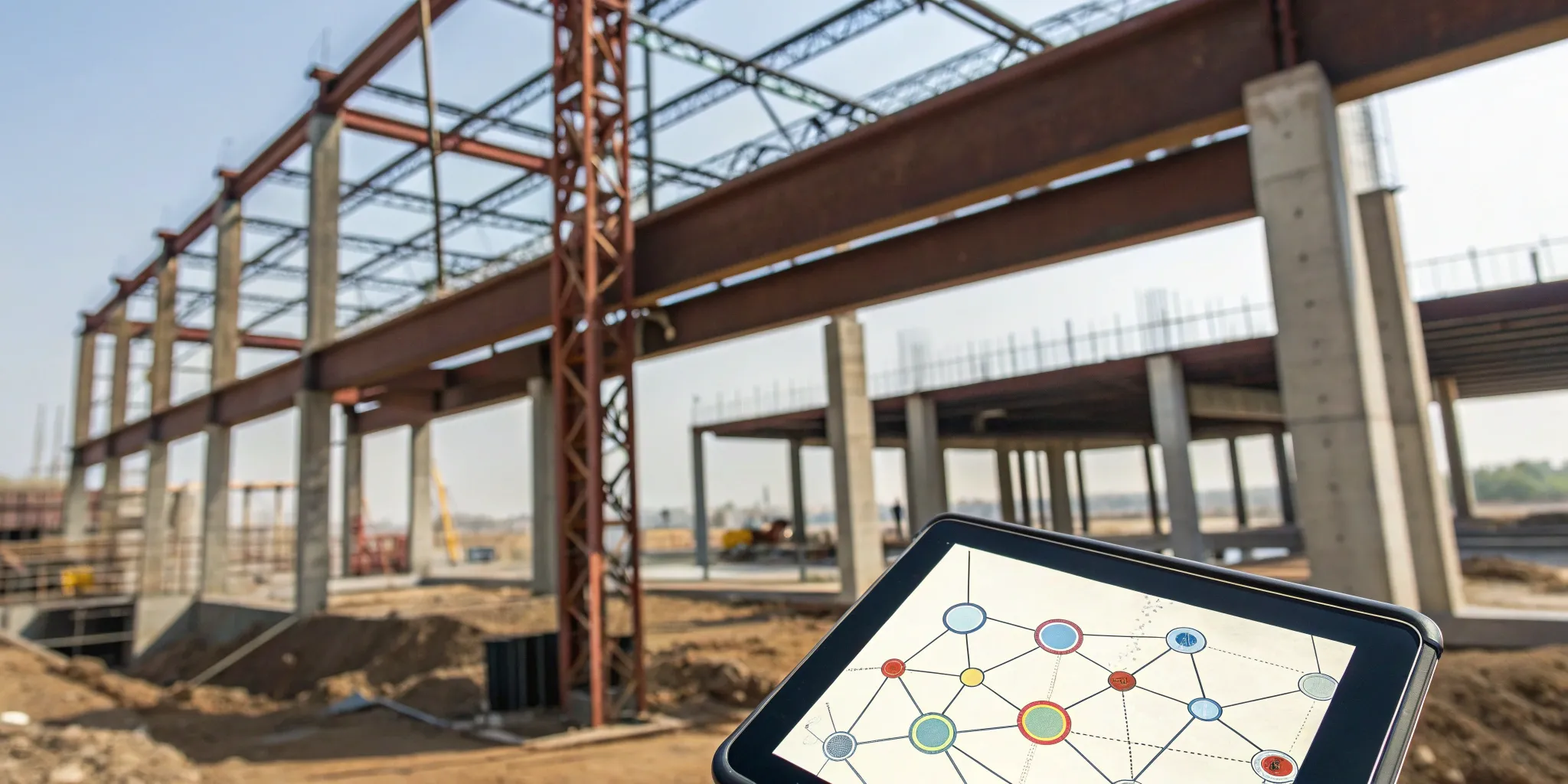.png)
The Relationship-First Approach to Construction Technology: Why Timing Beats Tools
The Relationship-First Approach to Construction Technology: Why Timing Beats Tools
How forward-thinking contractors are leveraging AI to strengthen relationships, not replace them
The construction industry stands at a crossroads. While technology promises to revolutionize how we build, the most successful firms understand a fundamental truth: construction remains a relationship-driven business. The question isn't whether to embrace technology, but how to choose tools that amplify your existing relationships while opening doors to new ones.
This insight came into sharp focus during a recent conversation with a Texas-based general contractor, a four-year-old firm with 60+ years of combined leadership experience. Their approach to technology adoption offers valuable lessons for any construction professional navigating today's digital landscape.
The Toolbox Trap: Quality Over Quantity
"We haven't gotten to using anything yet," explained one of their business development leaders."We've wanted to be mindful of where we are and really be particular about what's going to add value and what we're going to get the most out of, rather than just, hey, let's start filling up the toolbox with
all these different platforms and see which one sticks."
This measured approach reflects a maturity that many established firms would benefit from adopting. In an era where new construction technology emerges weekly, the temptation to chase every shiny object can lead to tool fatigue, fragmented workflows, and diminished returns on investment.
This contractor's strategy highlights three critical considerations for technology adoption:
- Strategic Timing: When do you continue leveraging existing connections versus bringing in platforms that help you reach people faster and use time more efficiently?
- Value Alignment: Does this tool enhance what we already do well, or does it require us to fundamentally change our approach?
- Relationship Enhancement: Will this technology help us strengthen existing partnerships while building new ones?
The Private Sector Challenge: Where Relationships Meet Revenue
The conversation revealed a truth many contractors know but few discuss openly: while public sector projects offer transparency and accessibility, the private sector is where negotiated work—and often the most profitable relationships—live. "Where you can really land the negotiated work is going to be that private sector aspect of things," noted our discussion.
"Public sector, you're able to be aware of most, if not all those jobs if you're doing your due diligence. But there really wasn't a tool out there that's able to identify all those private sector jobs before they come to you." This gap represents both a challenge and an opportunity. The firms that crack the code on early private sector intelligence while maintaining their relationship-first approach will capture an outsized share of premium work.
The "Cheap Mini Employee" Philosophy
One of the most compelling concepts that emerged was viewing technology not as a replacement for human intelligence, but as an extension of it—"a really cheap mini employee from a salary perspective." This framing shifts the conversation from automation versus human expertise to amplifying human capabilities.
The goal isn't to eliminate the need for relationship building, but to:
- Track existing partners more systematically to catch opportunities you might otherwise miss
- Stay informed about what trusted partners are working on without constantly checking in
- Identify new potential partners based on their active project portfolio
- Time your outreach when you can add the most value
The Intelligence Advantage: Timing Over Tools
"Timing is not everything, but almost everything in the construction industry," came up repeatedly in our conversation. "If you know about a project on time, it's going to help your chances significantly of winning it, whereas finding out weeks later about the project..." This insight cuts to the heart of what separates successful contractors from the rest. It's not just about having the best relationships—it's about knowing when to activate them.
Consider the difference between these two scenarios:
- Scenario 1: You learn about a project through traditional channels when the RFP hits your inbox. You're competing with everyone else who received the same information at the same time.
- Scenario 2: You discover the project during design and planning, before a GC is attached. You can approach the developer or architect as a strategic partner rather than just another bidder.
The relationship may be equally strong in both cases, but the outcome will likely be very different.
Building the Future on Proven Foundations
One general contractor partner’s approach offers a blueprint for how established firms can thoughtfully integrate new technology:
1. Leverage what works: Don't abandon the relationships and expertise that got you here
2. Identify specific gaps: Where do existing processes leave money on the table?
3. Choose tools that amplify strengths: Technology should make you better at what you already do well
4. Maintain the human element: The goal is better conversations, not fewer conversations
The Path Forward
As the construction industry continues evolving, the winners won't be those who adopt the most technology or those who resist it entirely. They'll be the firms that thoughtfully integrate tools that enhance their relationship-building capabilities while maintaining the human touch that construction requires.
The future belongs to contractors who understand that in a relationship-driven industry, the best technology doesn't replace relationships—it helps you build them faster, maintain them better, and activate them more strategically. For firms facing similar decisions, and countless others asking similar questions, the path forward isn't about choosing between relationships and technology. It's about choosing technology that puts relationships first.
Ready to see how early project intelligence can amplify your existing relationships? Learn more about how Mercator.ai helps contractors like our general contractor partners identify opportunities before they become competitions.
AI-powered business development for the construction industry
Schedule a time to discuss your use case and walk through a custom demo of the platform.


